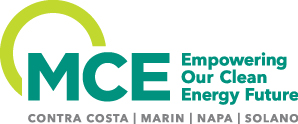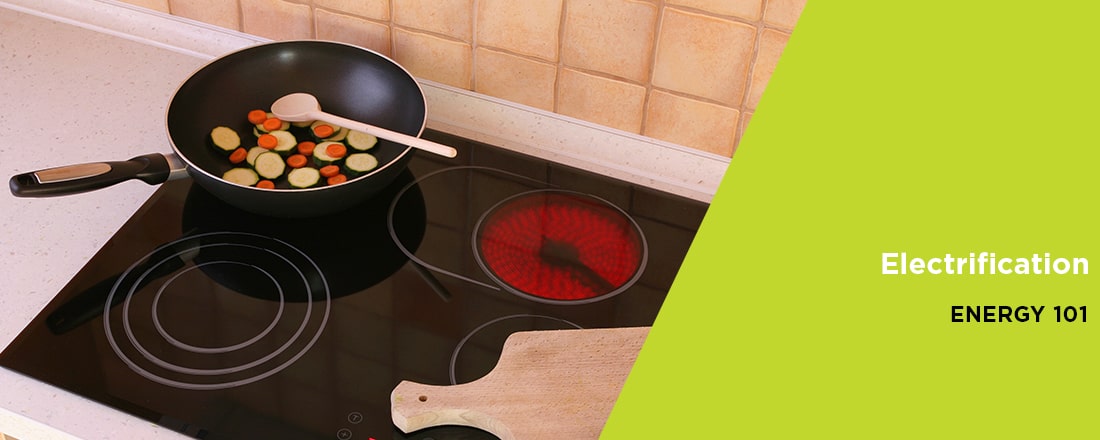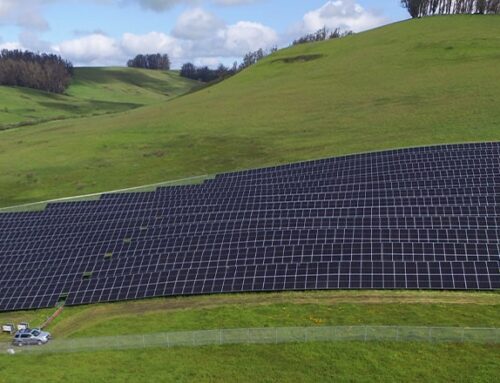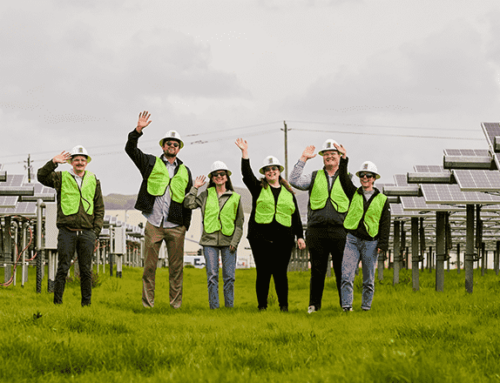MCE’s Energy 101 Series focuses on the why and how of renewable energy so that you can learn more about concepts like the benefits of biomass and the science behind solar. Looking for more? Check out the links in this blog to read more about Energy 101 or to dive deeper into our Energy Expert series.
Electrification means replacing technology that runs on fossil fuels with technology that runs on electricity. As the power mix on our grid becomes cleaner, electrifying technology will also make the appliances we use in our homes and businesses cleaner. When we move to completely renewable sources like wind and solar, electrification can help move us to a future that’s completely carbon-free.
Residential Sector
Residential energy use accounts for roughly 20% of greenhouse gas emissions in the United States. Electrification is a key step in curbing these emissions. Homes can be electrified by switching to heat pump water heaters and heat pump space heaters, which function on electricity and refrigerants. Heat pumps offer two significant advantages over conventional natural gas heaters: increased energy efficiency and reduced air pollution. Residential properties can also switch to electric and induction cooktops. Compared to gas ranges, electric and induction cooktops produce less ambient heat, which means lower air-conditioning costs. Gas stoves can also emit free-floating air pollutants that contribute to poor indoor air quality.
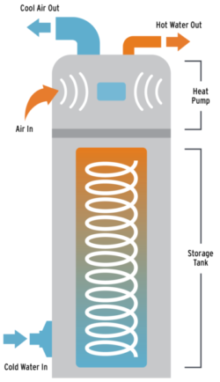
Diagram of Heat Pump Water Heater
Transportation Sector
The transportation sector makes up the largest share of emissions in the United States with most cars running on gasoline or diesel. Switching to electric cars, trucks, and buses is a crucial step toward carbon neutrality. Marin Transit recently piloted the use of two Zero Emission Battery Electric Buses and found that they saved 5,285 kg of CO2 over the course of a year which is equivalent to the yearly carbon sequestration of 7 acres of forest. Electrification of transportation brings such benefits as lower fuel & maintenance costs, improved air quality, and reduced emissions.
Industrial Sector
The industrial sector makes up the largest share of energy consumption in the United States. Manufacturers can electrify machinery, vehicles, and the heating and cooling of buildings. It’s estimated that almost 50% of the fuel that industrial companies use for energy can be electrified with existing technology.
How does MCE support electrification?
MCE offers several programs that support a transition to cleaner and more energy efficient electrification technologies.
Electrification Workforce Development
MCE’s workforce programs ensure that energy professionals and job seekers are trained in the latest electrification technologies. Our Electrification Workshop Series provides education and training on technical topics for contractors and other professionals. Check out our resources for contractors for a full list of workshop recordings and upcoming meetings. MCE also provides no-cost, in-field, home performance and electrification consultations with MCE’s partner, the Association for Energy Affordability, a trusted energy industry leader.
Home Electrification
The Multifamily Energy Savings Program offers rebates for energy efficiency, electrification, and health, safety, and comfort upgrades for multifamily properties in MCE’s service area. Additional stacked rebates are available for income-qualified multifamily property owners or renters through the Low-Income Families and Tenants (LIFT) Program. Qualifying households have received upgrades, such as switching natural gas and propane heating equipment to high-efficiency electric heat pumps. A recent study on the LIFT Program showed that the participating households saved over $192 per year on their electric bills through energy efficiency upgrades. MCE also helps customers electrify their water heaters through rebates to homeowners and contractors.
Electric Vehicles (EVs) & EV Charging
MCE is offering a $3,500 rebate for income-qualifying customers to purchase or lease a new EV. Additionally, MCE can help qualifying customers combine this rebate with federal, state, and local incentives for a total discount of up to $14,500 for a new EV or $7,000 for a used EV.
MCE also supports EV charging infrastructure through the MCEv Charging program, which serves large and small charging projects (4-40 ports for Level 1; 2−20 ports for Level 2). The program allows multifamily properties and workplaces to save up to $3,000 per port as well as up to an additional $500 per charging port for charging stations that opt up to Deep Green 100% renewable energy. MCE will provide technical assistance for customers throughout the process.
